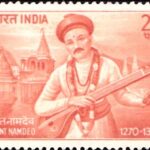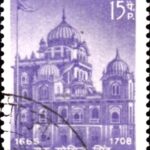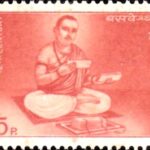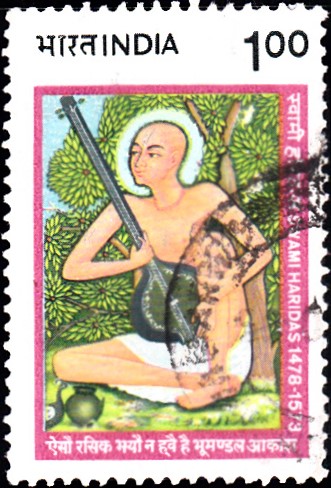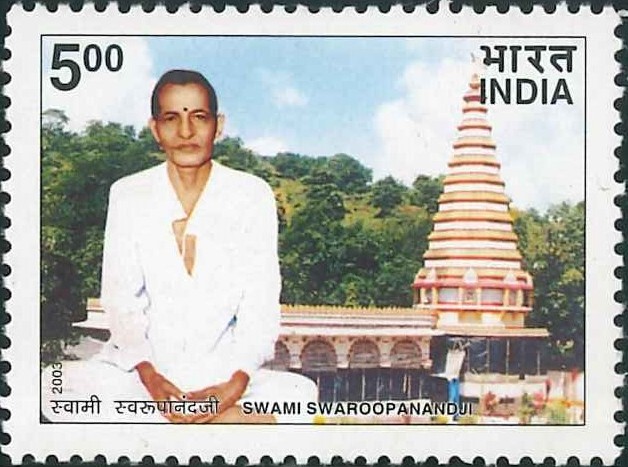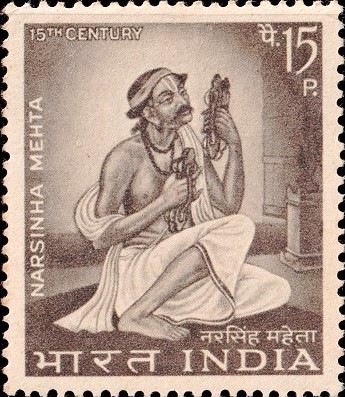
Narsinha Mehta
A commemorative postage stamp on Adi Kavi Narsinh Mehta, an Indian Gujarati poet-saint, exponent of Vaishnava poetry :
 Issued by India
Issued by India
Issued on May 30, 1967
Issued for : The Posts and Telegraphs Department is proud to bring out a special postage stamp in his honour on the 30th May, 1967.
Type : Stamp, Mint Condition
Colour : Suede Grey
Denomination : 15 Paisa
Overall Size : 3.34 X 2.88 cms.
Printing Size : 2.99 X 2.52 cms.
Perforation : 13½ x 14
Watermark : Printed on unwater–marked paper
Number Printed : 20,00,000
Number per issue Sheet : 42
Printing Process : Photogravure
Designed and Printed at : India Security Press
Name : Narsinh Mehta (Narsi Mehta or Narsi Bhagat)
Born on 1414 at Talaja, Bhavnagar, Gujarat, India
Died on 1481 at Saurashtra, Gujarat, India
About :
- Poet, bhakta, apostle of Aryan culture, Narsinha Mehta voiced the new impulse of Bhakti in Gujarat. About the beginning of the seventeenth century his fame as bhakta spread over all the provinces of India. His life and works fired popular imagination and he had soon become the centre of a new mythology of Bhakti.
- Narsinha was born in the village of Talaja near Junagadh. He lost his father at an early age. He associated with itinerant sadhus and was introduced by them to the mysteries of Bhakti peculiar to Vrindavan. He composed padas or bhajans, mainly devotional but sometimes philosophic or ethical. The bulk of his works consists of about 740 padas collected under the name of ‘Sringaramala‘, the “Rosary of Love“. These padas have given to the men and women of Gujarat a glimmer of romance, of love and of the joy of life. Expressive in nobility and teaching eloquence his padas are a living source of faith and inspiration. His vedantism is highly practical and when the ‘dheds‘ or sweepers invited him to sing his bhajans he agreed to go, ‘where distinctions come in, God departs. To the eyes of the dispassionate, all are equal.’
- The legacy of rich and varied vocabulary and language of great power and beauty which he left exercised a great influence on literature. His padas cast in the slow-moving and elastic prabhatia metre generally reserved for early morning prayers moulded the language and sentiments of succeeding generations. He broke away from the lifeless literary traditions of his days and changed Gujarati poetry from an impersonal to a personal art. Mahatma Gandhi had made one of his famous verses as the hymn of his life.


